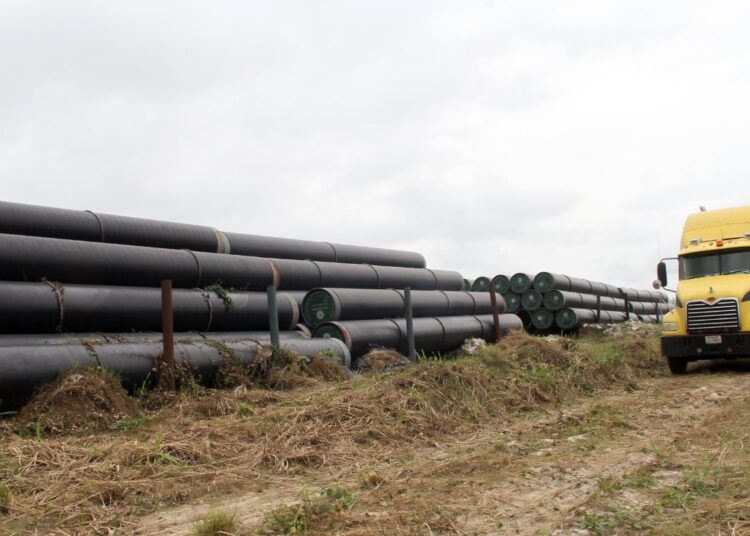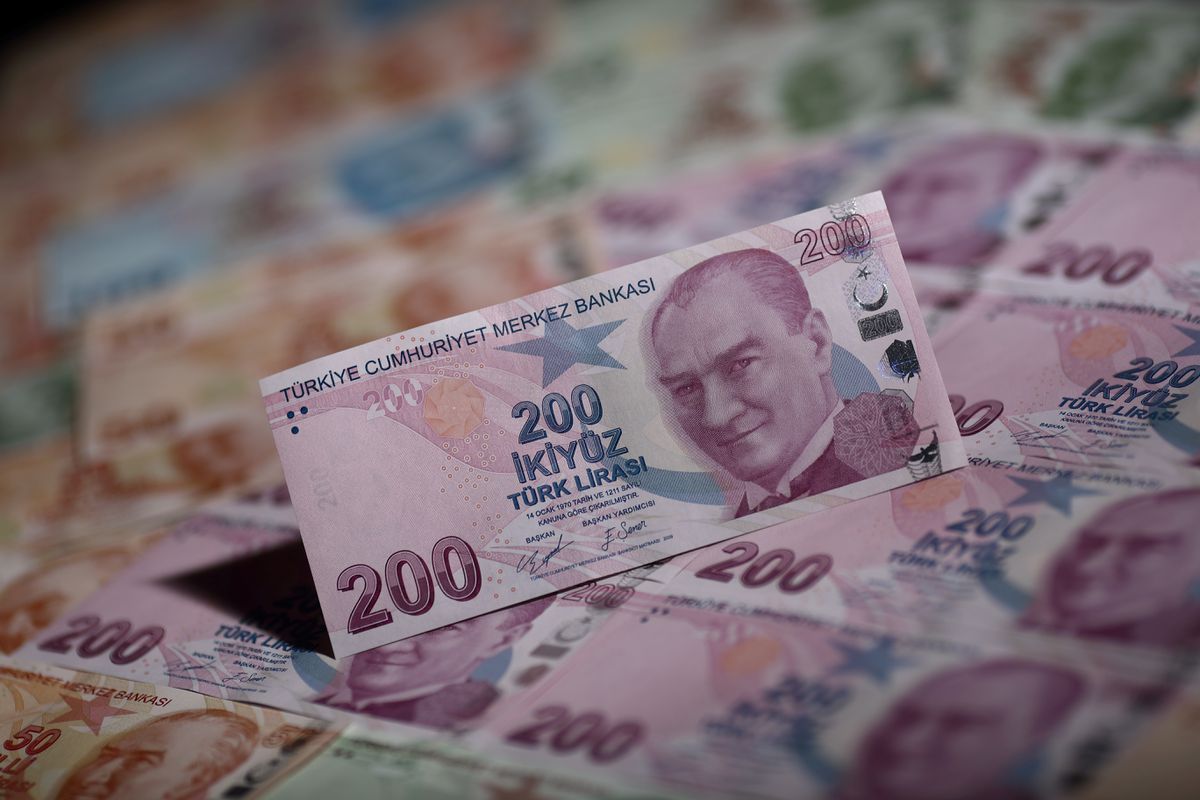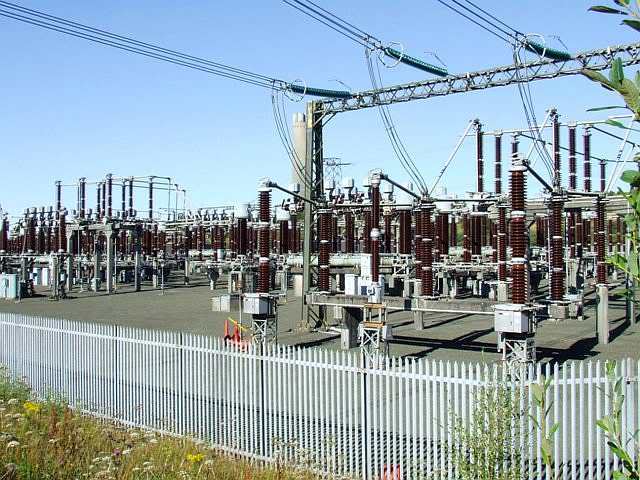The $13 billion Nigeria, Niger and Algeria proposed Trans-Sahara Gas Pipeline (TSGP) project is taking shape following the signing of the Memorandum of Understanding signed on Thursday by the three countries.
The MoU was signed in Algiers, capital of Algeria after the countries approved the report of the Steering ministerial committee set up in June to monitor the development in the proposed construction
The MoU of the about 4,100 kilometres gas pipeline across the Sahara Desert that will eventually supply Europe with additional gas was signed on July 28, 2022 in the presence of the energy ministers of the three African countries.
“Today’s meeting follows two previous meetings respectively in Niamey in February and in Abuja in June,” Algerian Minister of Energy and Mines Mohamed Arkab, said.
“We have taken a number of decisions and we are making remarkable progress in the construction of this strategic project,” he said.
The TSGP, a mega gas pipeline project linking Algeria, Niger and Nigeria, is expected to span 4,000 km and could send up to 30 billion cubic meters of natural gas per year.
The committee that facilitated the signing of the MoU is made up of the three Ministers and Director Generals of the NOCs was inaugurated at the two-day meeting of the three countries in Abuja in June in Abuja.
It was empowered to update the feasibility of the TSGP and was tasked to meet at the end of July 2022 in Algiers to discuss how to progress with the TSGP project.
The 4,128 kilometres gas pipeline is running from Warri in Nigeria’s oil rich Niger Delta to Hassi R’Mel in Algeria through Niger.
Nigeria has already kicked off the first phase of the proposed TSGP, with the laying of pipes running from Warri through Ajaokuta, Kaduna to North West Kano state named AKK.
The Nigeria’s segment, $2.8 billion Ajaokuta–Kaduna–Kano (AKK) pipeline, is a 614km-long pipeline being developed by Nigerian National Petroleum Corporation Limited (NNPC) to transport natural gas from southern Nigeria to Northern Nigeria.
AKK pipeline project also represents phase one of the 1,300 kilometres long Trans-Nigerian Gas Pipeline (TNGP) project, which is being developed as part of Nigeria’s Gas Master Plan to utilise the country’s surplus gas resources for power generation as well as for consumption by domestic customers.
Nigeria holds Africa’s biggest and one of the world’s biggest gas reserves. It’s proved natural gas reserves stand at 188 trillion cubic feet (tcf) comprising 99tcf of associated gas and 89tcf of non-associated gas.
The AKK pipeline is planned to be developed on a build-own-operate-transfer (BOOT) basis under public-private partnership (PPP), supervised by Nigeria’s Infrastructure Concession Regulatory Commission (ICRC) and is being financed through 85% debt and 15% equity.
The loan facility is being provided by the China Export & Credit Insurance Corporation (Sinosure) at London Interbank Offered Rate (LIBOR) interest rate plus 3.7% with a 12-year repayment period.
The Nigerian Government decided issued a sovereign guarantee to back the loan facility for the pipeline.
The AKK pipeline which involves a consortium of two local companies, including Oando and Oilserv, will transport up to 3,500 million cubic feet (mcf) of gas a day from various gas gathering projects in southern Nigeria.
Mr Timipre Sylva, Nigeria’s Minister of State for Petroleum Resources, hosted the June 20, 2022 meeting in Abuja which was attended by Mr Mahamane Sani Mahamadou, Minister of Petroleum of Republic of Niger; and Mr Mohamed Arkab, Minister of Energy and Mines, Algeria.
The meeting culminated in the establishment of the committee to discuss the implementation of the TSGP
All the parties commended the forum as significant step, roadmap and key driver to making TSGP a reality.
The proposed 4,128 TSGP will not only create a direct connection between Nigeria and Algeria’s gas fields to European markets but will bring significant benefits for Niger, Mr Mahamadou said.
With the project, the Niger minister said that the country had reached a new milestone in further opening the domestic and regional gas market.
With over 34 billion cubic meters of gas, Niger, in its own rights, has the potential to become a gas exporter, and with Europe expanding energy ties with Africa.
The TSGP project will mark a new era of improved regional cooperation in Africa, enhancing gas monetization and exports while scaling up Niger-exports to Europe via Algeria, he said.
He explained that with Niger seeking to improve electricity access and ensure energy affordability through increased exploitation of gas, the TSGP initiative will be a game changer.
“The pipeline will enable up to 30 billion cubic meters of natural gas to be traded yearly enhancing regional and international energy trade, enabling Niger to expand the role of natural gas in its energy mix and address energy poverty.’’
The $13 billion project will drive socioeconomic growth by unlocking massive investments across the energy sector and help create jobs in various industries including energy, petrochemicals and manufacturing whilst optimizing energy production, Mr Sylva said at the meeting.
It will position Africa as a global energy hub, but frowned that the project was long overdue and that it had been on the drawing board for years and needed to be actualised, especially given that gas prices have skyrocketed.
The pressure from Europe to ramp up supply to the continent against the backdrop of the Russia-Ukraine war, was a pointer that gas had become a weapon of international war, the Nigerian oil minister said on June 20, 2022 in Abuja.
Stressing that the project needed to be fast-tracked, Mr Sylva explained on the side of Nigeria, the AKK was already in full swing.
“We as Africans should show the world that we can come together and build major infrastructure like the TNGP to signal that Africa has come of age because this kind of regional integration project is the kind that the world wants to see,” he noted.
According to him, when the gas from Nigeria, Algeria and Niger are properly harnessed, it will add significantly to world supply and put the continent on the world map.
Also, Mr Arkab, also explained that the project would help achieve carbon neutrality in the short term, but added that a global and efficient energy transition cannot take place without the contribution of hydrocarbons.
“The TSGP project is in line with our national objectives and our international commitments in reducing the carbon footprint and securing the supply of natural gas to markets.
“The TSGP presents itself as a new source of supply for markets whose demand is constantly growing, given the place that natural gas will occupy in the future energy mix.
“Counting on the know-how of our countries in production, transport and marketing fields, it is obvious that the TSGP project, with the advantages it can provide, will further strengthen our production capacities and enhance our capabilities to play a major role in the international markets,” he said.














